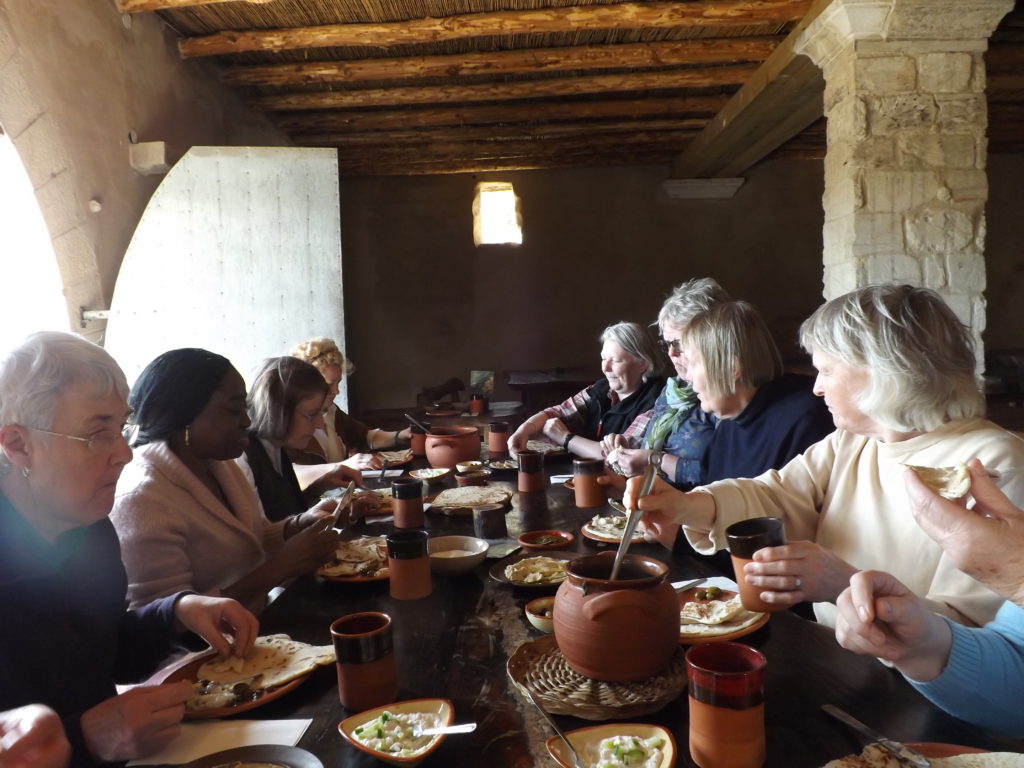How shocking!
Jesus regularly shocked his contemporaries, especially the religious ones. Here are some examples.

Not washing
It doesn’t seem a big deal. In the Disney film “Snow White and the Seven Dwarves”, Snow White asks her friends, “When did you last wash your hands?” The all reply, “Recently”. That wasn’t quite Jesus’ attitude
While he was speaking, a Pharisee invited him to dine with him; so he went in and took his place at the table. The Pharisee was amazed to see that he did not first wash before dinner. (Luke 11.37-38)
It was just the normal, polite, Jewish thing to do, wash your hands ceremoniously before dining. But Jesus very obviously just walked past the water basins. He was deliberately making a point, which he explained by saying, “You Pharisees clean the outside of the cup and of the dish, but inside you are full of greed and wickedness. You fools! Did not the one who made the outside make the inside also? So give for alms those things that are within; and see, everything will be clean for you.” (Luke 11.39-41)
Very confrontational. Not the way to win friends!
Bad Company

In Jesus time, to eat with someone was to create a significant social link. Religious Jews were careful about who they associated with, because as St Paul said in 1 Corinthians 15.33, “Bad company ruins good morals”. But Jesus quite deliberately accepted invitations from the most disreputable people. ‘Tax collectors and prostitutes’ sounds bad. ‘Loan sharks and escorts’ sounds worse. Why did Jesus associate with these types? Perhaps because they had less baggage standing in their way to a direct relationship with God than the religious types. He himself said, ‘Those who are well have no need of a physician, but those who are sick; I have come to call not the righteous but sinners.’ (Mark 2.17). I.e. he had come precisely for those who had put themselves beyond the pale. But it certainly got him a bad reputation for being a “glutton and a drunkard” (Luke 7.34). Shocking!
What a way to talk!
Jews had and have a very respectful way to talk about G-d – even being unwilling to pronounce his name. So YaHWeH got changed into ‘Lord’ or ‘Adonai’ – the Jehovah Witnesses are right! They referred to him as King, Creator, and sometimes Father.
But Jesus used the most disreputable characters to talk about God – using a Zen technique of topsy-turvydom.
So: God as a burglar: When a strong man, fully armed, guards his castle, his property is safe. But when one stronger than he attacks him and overpowers him, he takes away his armour in which he trusted and divides his plunder. (Luke 11.20-21)

God as a unpopular tax farmer: ‘Someone gave a great dinner and invited many. At the time for the dinner he sent his slave to say to those who had been invited, “Come; for everything is ready now.” But they all alike began to make excuses…’ (Luke 14.16-17). Why? because although rich, no one who was respectable would touch him with a bargepole. Like Zacchaeus, the rich and unpopular chief tax farmer of Jericho. Matthew gets it completely wrong! (Matthew 22.1-14)
God as a woman: What woman having ten silver coins, if she loses one of them, does not light a lamp, sweep the house, and search carefully until she finds it? When she has found it, she calls together her friends and neighbours, saying, “Rejoice with me, for I have found the coin that I had lost.” (Luke 15.8-9)
Cannibalism?

In John 6 Jesus says, ‘Amen amen, I tell you, unless you eat the flesh of the Son of Man and drink his blood, you have no life in you. Those who eat my flesh and drink my blood abide in me, and I in them. (John 6.53, 56). The actual word is “chew”. No wonder the crowd said, ‘This teaching is difficult; who can accept it?’ (John 6.60).
Even if this speech owes more to John than to Jesus, my father, a good Jewish agnostic, thought that the words of Jesus in Holy Communion “This is my body,” “This is my blood,” was an invitation to cannibalism.
Blasphemy

When Jesus was arrested on Passover night and brought before an unofficial Sanhedrin inquiry, the High Priest asked him “Are you the Messiah, the Son of the Blessed One?” Jesus replied (in Mark) “I am”. In Matthew the reply is “You have said so”. In Luke it is “You say that I am”. (Mark 14.62, Matthew 26.64, Luke 22.70).
The last two could be polite ways of saying ‘yes’. They could also have been ways that the Jewish members of the Early Church could avoid using the sacred name of God. So I can understand why the actual words of Jesus, as we have them recorded in Mark, were toned down in the first church in Jerusalem, which was entirely composed of Jews. It was not blasphemy to claim to be the Messiah – you could just be mistaken. To use the sacred name of God to refer to oneself would have been blasphemy.
So for Jesus to reply to Caiaphas’ question, “I AM’ or ‘YaHWeH’ would have had the exact result we read of. “Then the high priest tore his clothes and said, ‘Why do we still need witnesses? You have heard his blasphemy! What is your decision?’ All of them condemned him as deserving death.’ (Mark 14.63-64)
The only defence that Jesus could have made, was that he was telling the truth.
